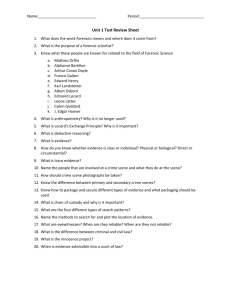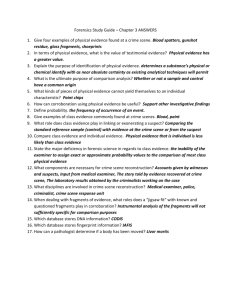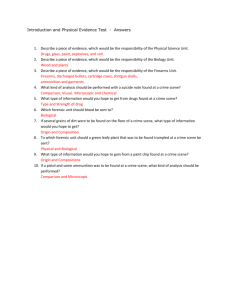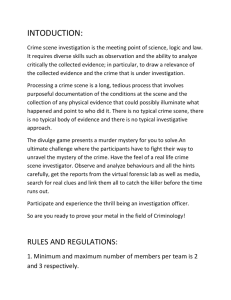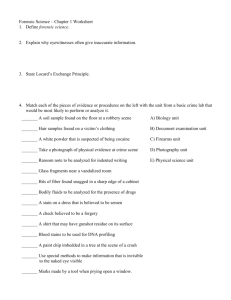3.2
advertisement
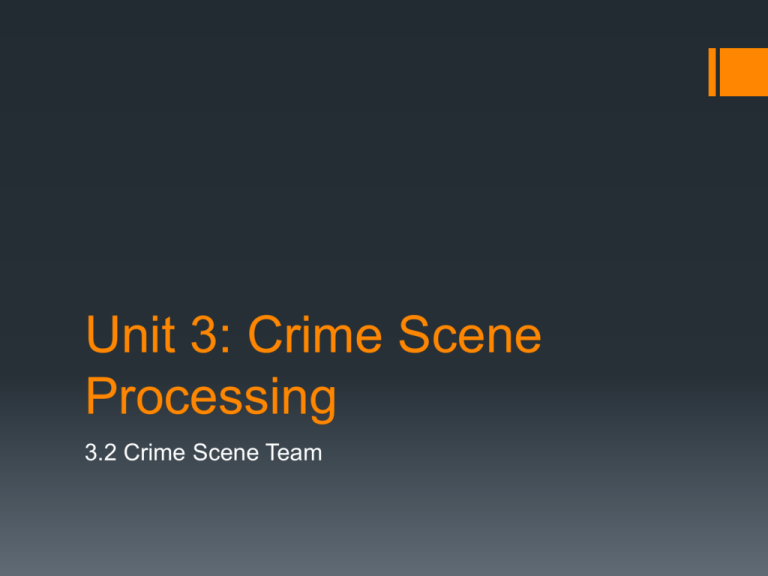
Unit 3: Crime Scene Processing 3.2 Crime Scene Team CRIME SCENE TEAM A group of professional investigators, each trained in a variety of special disciplines. Team Members First Police Officer on the scene Medics (if necessary) Investigator(s) Medical Examiner (if necessary) Photographer and/or Field Evidence Technician Lab Experts Crime Scene Team SOCO Medics (if necessary) Investigators Medical Examiner Photographer Lab Experts “Scene Of Crime Officer” SOCO SOCO First officer on the scene First to respond but also first to potentially damage or contaminate. Cardinal Rule: “Eyes open, mouth shut, hands in pockets” FIRST OFFICER ON THE SCENE A Assess the crime scene and assist those hurt D Detain the witness A Arrest the perpetrator P Protect the crime scene T Take notes Only required if an injured victim or witness are present medics Emergency Medical Services (EMS) Both EMTs and paramedics have the knowledge and skills to transport patients and provide them with emergency care. Difference is the amount of education they receive scope of practice Emergency Medical Technician (E.M.T.) 120-150 hours of coursework Cannot break skin (no needles) Paramedics 1200-1800 hours of coursework Medical examiner THE MEDICAL EXAMINER AND THE CORONER A medical examiner is a medical doctor, usually a pathologist and is appointed by the governing body of the area. About 400 certified forensic pathologists A coroner is an elected official who usually has no special medical training. MEDICAL EXAMINER’S RESPONSIBILITIES Identify the deceased Establish the time and date of death Determine a medical cause of death (COD) Determine the mechanism of death Classify the manner of death Notify the next of kin Investigators & Field Technicians INVESTIGATORS “The wise forensic investigator will always remember that he must bring all of his life experiences and logic to find the truth. This means common sense, informed intuition, and the courage to see things as they are. Then he must speak honestly about what it adds up to.” —Dr. Henry Lee Chief Emeritus for Scientific Services and the former Commissioner of Public Safety for the state of Connecticut Field Technicians Trained in a single or multiple fields specializing in processing a crime scene. Almost always with a partner or team Their actions can “make or break” a case. Field Tech Specializations Field technicians can specialize in: Evidence collection Note taking Photography Crime scene sketches/measurements Videography (relatively new field) Highly specialized lab Lab Experts Lab Experts In rare or high profile cases a highly specialized lab expert might be called to the scene to process or collect evidence.
